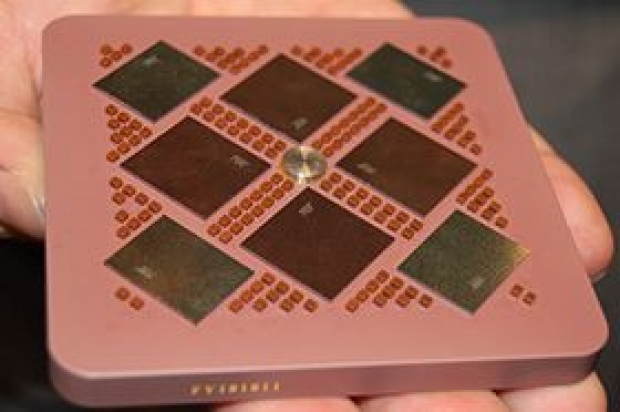According to Nexus, Nvidia is working with boffins from Arizona State University, the University of Texas, and the Barcelona Supercomputing Centre who have published a paper that looks at improving GPU performance using Multi-Chip-Module (MCM) GPUs.
The paper said tha transistor scaling cannot happen at historical rates anymore and chipmakers are staying with certain manufacturing processes longer but optimising performance in other ways. As "the performance curve of single monolithic GPUs will ultimately plateau", researchers are looking at how to make better performing GPUs from package-level integration of multiple GPU modules.
The cunning plan is to make easily manufacturable basic GPU Modules (GPMs) are integrated on a package "using high bandwidth and power efficient signalling technologies", to create multi chip module GPU designs.
The research team has been evaluating designs using Nvidia's in-house GPU simulator. Theoretical performance comparisons gainst multi-GPU solutions were also made.
The research shows that MCM GPUs could do wonders for increasing the SM count and many GPU applications "scale very well with increasing number of SMs".
They looked at the possibilities of a 256 SMs MCM-GPU in the paper, and are pleased by its potential. Using the simpler GPM building blocks and advanced interconnects this 256 SM chip "achieves 45.5 percent speedup over the largest possible monolithic GPU with 128 SMs," claim the researchers.
In further tests the 256 SM equipped MCM-GPU "performs 26.8 percent better than an equally equipped discrete multi-GPU, and its performance is within 10 percent of that of a hypothetical monolithic GPU that cannot be built based on today’s technology roadmap, the research paper said.
We should not expect to see MCM GPU graphics cards from Nvidia for a couple of hardware generations.




